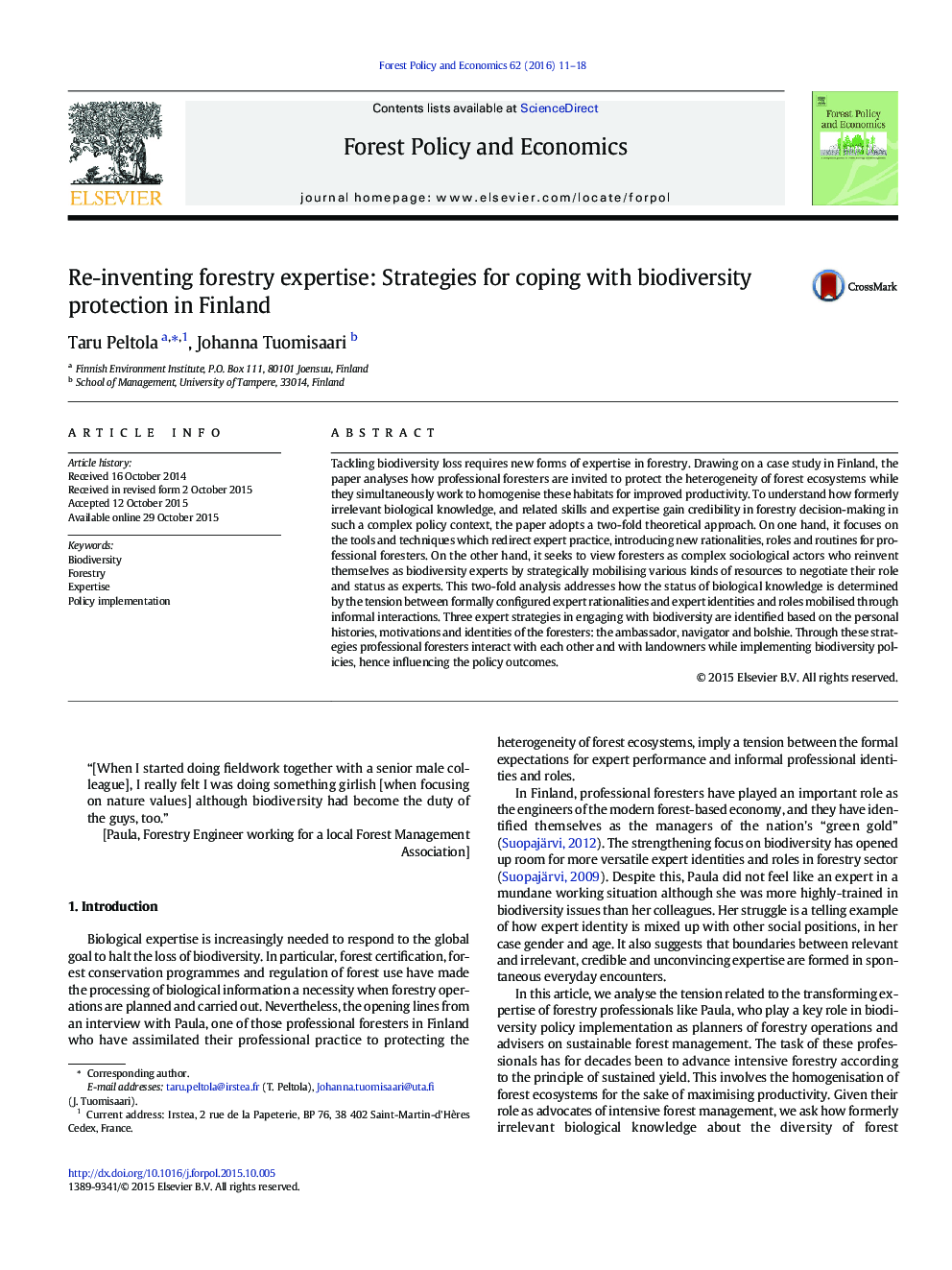| Article ID | Journal | Published Year | Pages | File Type |
|---|---|---|---|---|
| 6544900 | Forest Policy and Economics | 2016 | 8 Pages |
Abstract
Tackling biodiversity loss requires new forms of expertise in forestry. Drawing on a case study in Finland, the paper analyses how professional foresters are invited to protect the heterogeneity of forest ecosystems while they simultaneously work to homogenise these habitats for improved productivity. To understand how formerly irrelevant biological knowledge, and related skills and expertise gain credibility in forestry decision-making in such a complex policy context, the paper adopts a two-fold theoretical approach. On one hand, it focuses on the tools and techniques which redirect expert practice, introducing new rationalities, roles and routines for professional foresters. On the other hand, it seeks to view foresters as complex sociological actors who reinvent themselves as biodiversity experts by strategically mobilising various kinds of resources to negotiate their role and status as experts. This two-fold analysis addresses how the status of biological knowledge is determined by the tension between formally configured expert rationalities and expert identities and roles mobilised through informal interactions. Three expert strategies in engaging with biodiversity are identified based on the personal histories, motivations and identities of the foresters: the ambassador, navigator and bolshie. Through these strategies professional foresters interact with each other and with landowners while implementing biodiversity policies, hence influencing the policy outcomes.
Related Topics
Life Sciences
Agricultural and Biological Sciences
Forestry
Authors
Taru Peltola, Johanna Tuomisaari,
